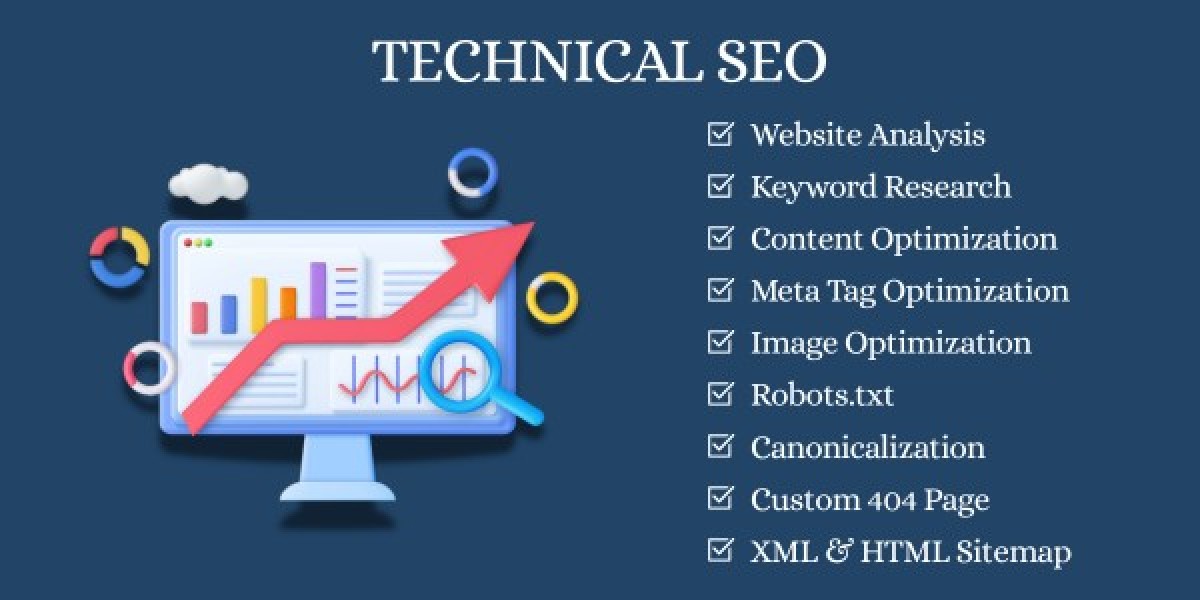When most people think of SEO, they picture keywords, backlinks, and content marketing. While these elements are important, they won’t deliver results if the foundation of your website isn’t solid. That foundation is built through technical SEO.
Technical SEO refers to the behind-the-scenes optimizations that help search engines crawl, index, and rank your site effectively. It ensures that search engines can access your website without barriers and that users have a smooth, seamless experience. Without it, even the most well-written content or powerful backlinks may never achieve their full ranking potential.
In this article, we’ll explain what technical SEO is, why it matters for rankings, and what steps you can take to strengthen your site’s technical health.
What Is Technical SEO?
Technical SEO is the practice of optimizing the infrastructure of your website so search engines can easily understand and rank it. Unlike on-page SEO (content optimization) and off-page SEO (link building), technical SEO focuses on the technical foundation of your site.
Key elements of technical SEO include:
Site Speed and Performance: Ensuring fast load times.
Mobile-Friendliness: Designing for responsive and mobile-first indexing.
Crawlability: Making sure search engine bots can access and move through your site.
Indexability: Ensuring the right pages get indexed, while duplicate or unnecessary ones do not.
Secure Protocols: Using HTTPS for trust and ranking signals.
Structured Data: Adding schema markup for enhanced visibility in search results.
Think of technical SEO as the foundation of a building—if it’s weak, everything else you build on top will eventually crumble.
Why Technical SEO Is Crucial for Rankings
1. Search Engines Need Clarity
Google and other search engines don’t “see” your website like humans do. They rely on signals in your code, site structure, and performance to determine how to rank your content. Without proper technical SEO, search engines may misinterpret or ignore your site.
2. User Experience and Engagement
Technical SEO also overlaps with user experience. Fast-loading, mobile-friendly, and secure websites reduce bounce rates and increase dwell time, which indirectly boosts rankings.
3. Site Authority and Trust
When a site loads quickly, has an SSL certificate, and provides a stable browsing experience, both users and search engines perceive it as more trustworthy.
4. Direct Ranking Factors
Certain technical aspects—like page speed and mobile-friendliness—are direct ranking signals in Google’s algorithm.
Key Elements of Technical SEO
Let’s dive deeper into the most important aspects of technical SEO.
1. Website Speed
Slow websites frustrate users and hurt rankings. Aim for a page load speed under three seconds. Tools like Google PageSpeed Insights and GTmetrix can help identify bottlenecks.
Compress and optimize images.
Minify CSS, JavaScript, and HTML.
Use browser caching.
Invest in a reliable hosting service.
2. Mobile Optimization
With mobile-first indexing, Google primarily uses the mobile version of a site for ranking. Responsive design, readable fonts, and touch-friendly buttons are crucial.
3. Crawlability and Indexability
Robots.txt: Controls which pages search engines can crawl.
XML Sitemap: Lists all important pages for search engines to discover.
Canonical Tags: Prevent duplicate content issues.
Noindex Tags: Keep low-value or private pages out of search results.
4. Secure Sockets Layer (SSL)
Google gives preference to sites using HTTPS over HTTP. Beyond rankings, SSL also builds user trust.
5. Structured Data and Schema Markup
Adding schema markup helps search engines understand your content contextually, leading to rich results like star ratings, product prices, and FAQs in SERPs.
6. Core Web Vitals
Google’s Core Web Vitals—Largest Contentful Paint (LCP), First Input Delay (FID), and Cumulative Layout Shift (CLS)—measure speed, interactivity, and stability. Improving these scores boosts both SEO and user experience.
Common Technical SEO Issues to Watch For
Even small technical errors can harm rankings. Here are common pitfalls to monitor:
Broken Links (404 Errors): They harm crawlability and frustrate users.
Duplicate Content: Can confuse search engines and dilute ranking signals.
Redirect Chains and Loops: Cause delays and waste crawl budget.
Unoptimized Images: Large files slow down load times.
Thin or Orphaned Pages: Provide little value and may waste crawl resources.
Regular site audits using tools like Screaming Frog, Ahrefs, or SEMrush can help identify and fix these issues.
How to Improve Your Technical SEO
Improving technical SEO requires a systematic approach. Here are some actionable steps:
Conduct a Technical Audit: Use SEO tools to detect and resolve crawl errors, duplicate content, and broken links.
Optimize Site Architecture: Ensure logical navigation and internal linking for easy crawling.
Improve Server Response Time: Upgrade hosting or use caching and CDNs for faster performance.
Submit an XML Sitemap: Keep it updated and submit it via Google Search Console.
Fix Crawl Errors Promptly: Address 404s, redirects, and indexing issues quickly.
Monitor Core Web Vitals: Use PageSpeed Insights to identify and address performance problems.
Use Schema Markup: Implement structured data for better search visibility.
Technical SEO as a Long-Term Investment
Technical SEO isn’t a one-time fix—it’s an ongoing process. As your website grows, new pages, plugins, or design changes can introduce issues. Consistent monitoring and optimization are necessary to stay competitive.
Agencies like mediaupshift often highlight technical SEO as a critical component of digital strategy. It’s the backbone of a successful website—ensuring your content and marketing efforts don’t go to waste.
Final Thoughts
Technical SEO may not be as glamorous as content creation or link building, but it’s absolutely essential. Without a technically sound website, even the best content can struggle to rank. By optimizing site speed, mobile usability, crawlability, and overall performance, you’ll create a stronger foundation for both search engines and users.
If you’re serious about SEO success, technical optimization must be part of your strategy. It ensures search engines can properly index your site, users enjoy smooth navigation, and your rankings reflect the true value of your content.












